Baby It’s Cold Outside!
Jan 26, 2023 by Tempe Javitz
Baby It’s Cold Outside!
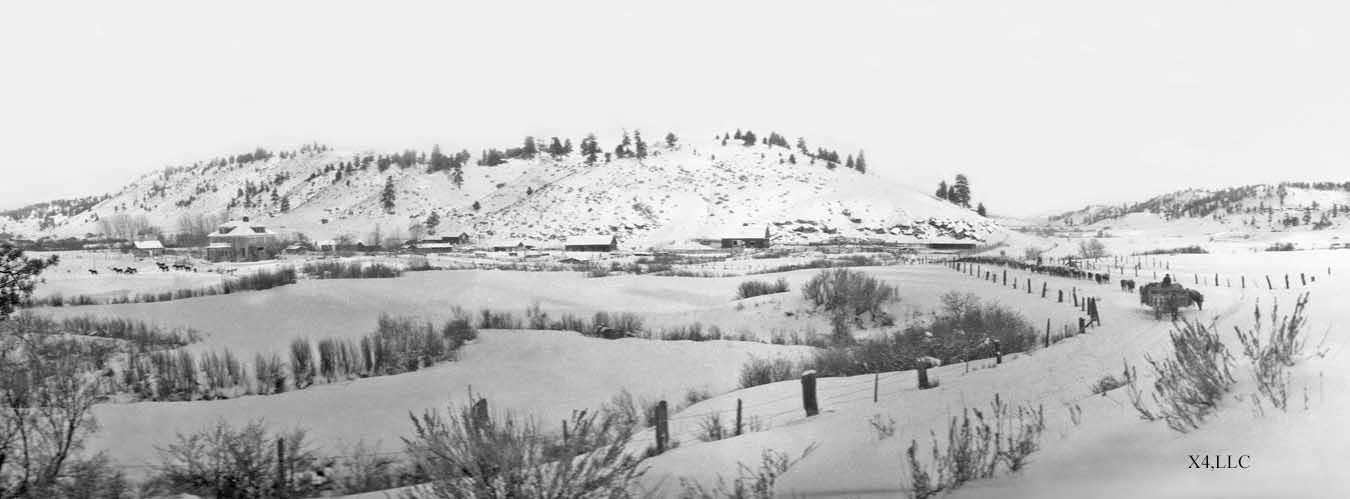
This is what ranch work looked like in January through
March in Montana or Wyoming in my grandmother
Jessamine's day. During my childhood in the 1950s it
was not unusual for a week or two in January or February
to be 20 below at sunrise. Here the X4 cattle are
following the hay wagon to a nearby pasture. The new
pasture will have hay stacks not yet depleted and easy
access to water from the Rosebud Creek. The house and barn
in the background is Jessamine and Will Johnson's home
sweet home.
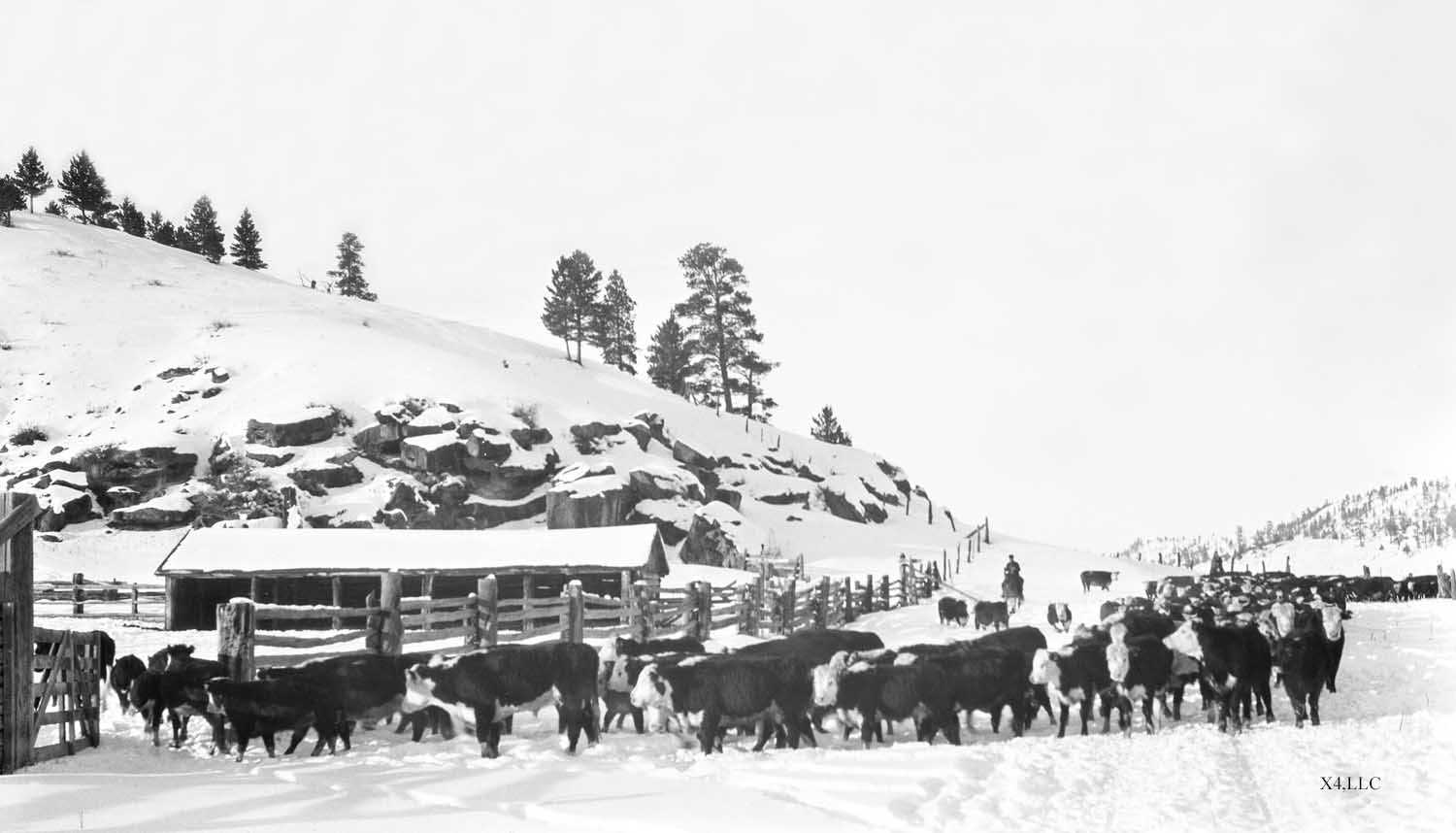
This bunch of Hereford cattle are headed into the corrals
at the X4 and likely to be driven up Indian Creek just west of
the house for easy access to the meadows in that area of the ranch.
At least the wind isn’t blowing the drifts any deeper this wintery
day. The cowboy in the background isn’t far from sneaking a
quick cup of hot coffee on his way past the bunkhouse.
Another common chore at this time of year is cutting and hauling
ice blocks to the ice house (for summer use). Here you can see
the sleds and horses hard at work moving the ice from the Indian
Creek Reservoir to ranch headquarters.
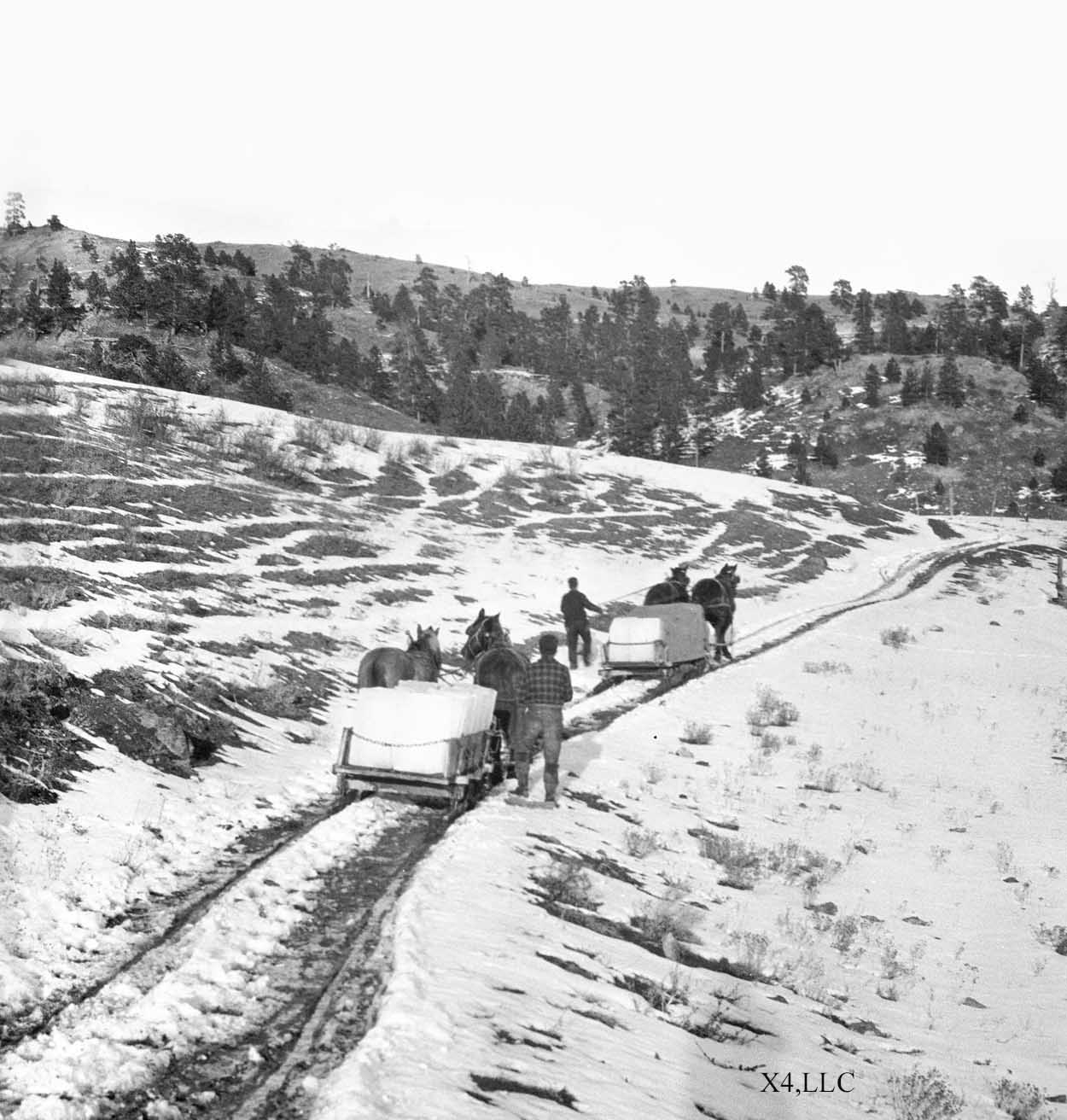
Jessamine, as a photographer, was ever aware of the beauty of the
landscape even in the shivery cold.
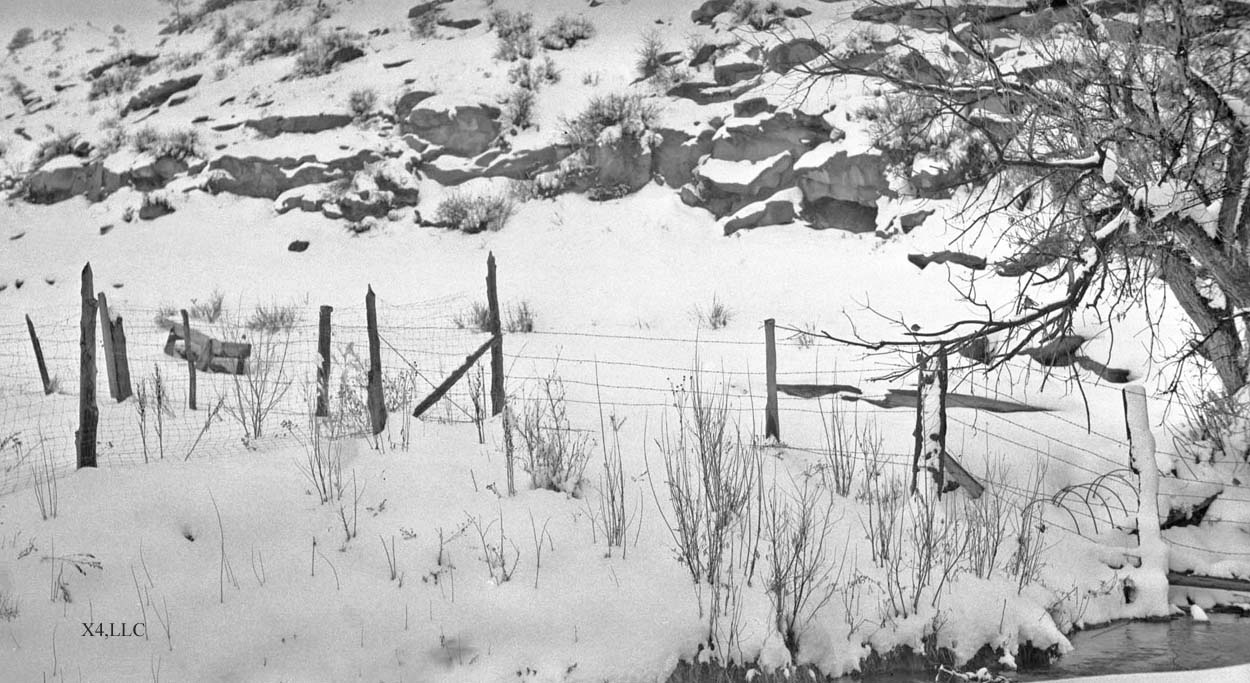
Speaking of shivering, hard working cowboy, Emil Samuelson, knew
how to dress for any cold Montana morning at the ranch in 1927.
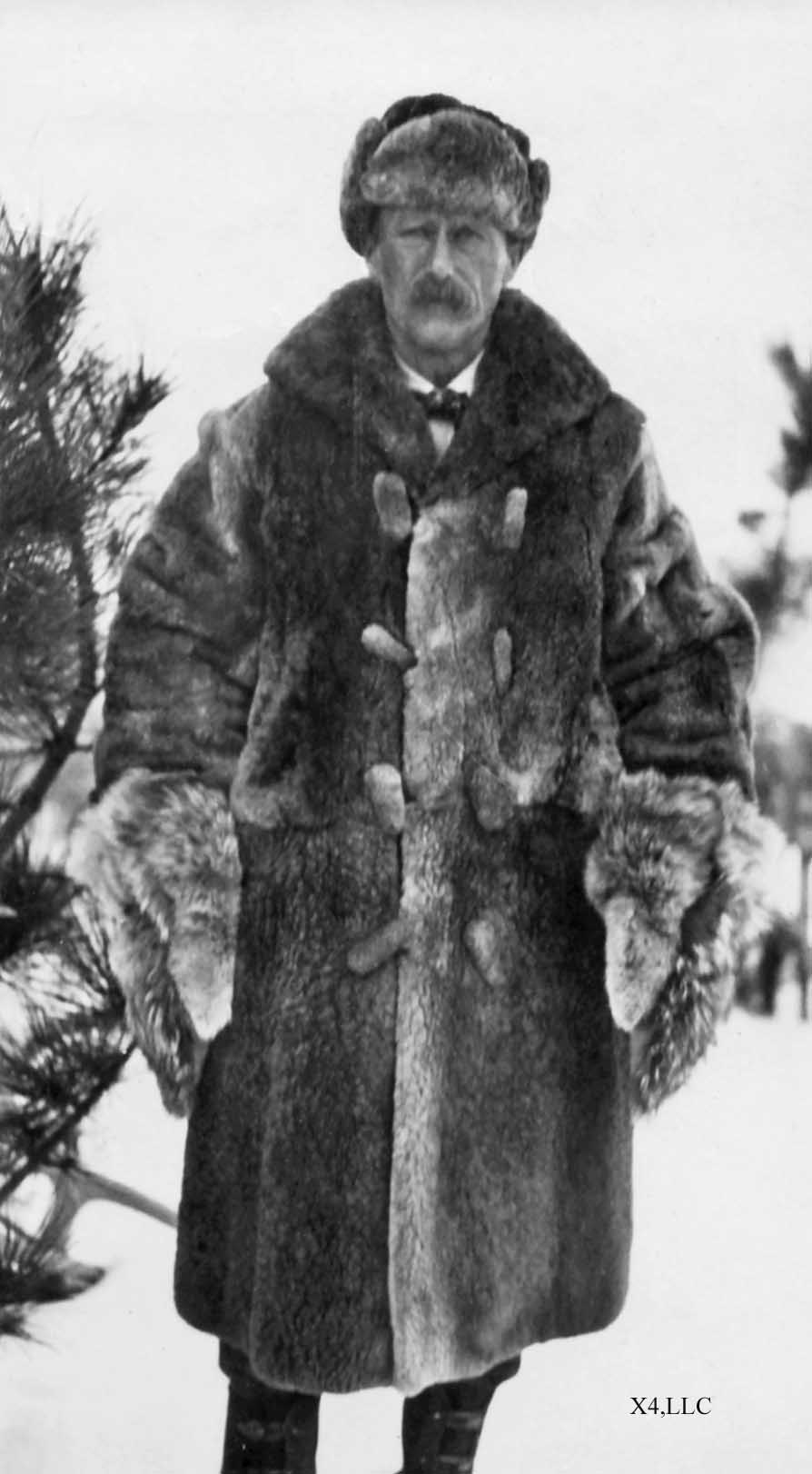
I’m guessing some animal or animals gave their best to keep him
comfortable from November to April in spite of the weather. It
matters little which year Mother Nature decides to send a storm
out of the north, but the winter of 2022-2023 is breaking many
records. It was 42 degrees below zero in Casper, Wyoming this
past December 22nd, breaking all previous records. Glad I wasn’t
out pushing the cattle off the hills down to the feed ground on
my pony Smokey, like I did in the 1960s.
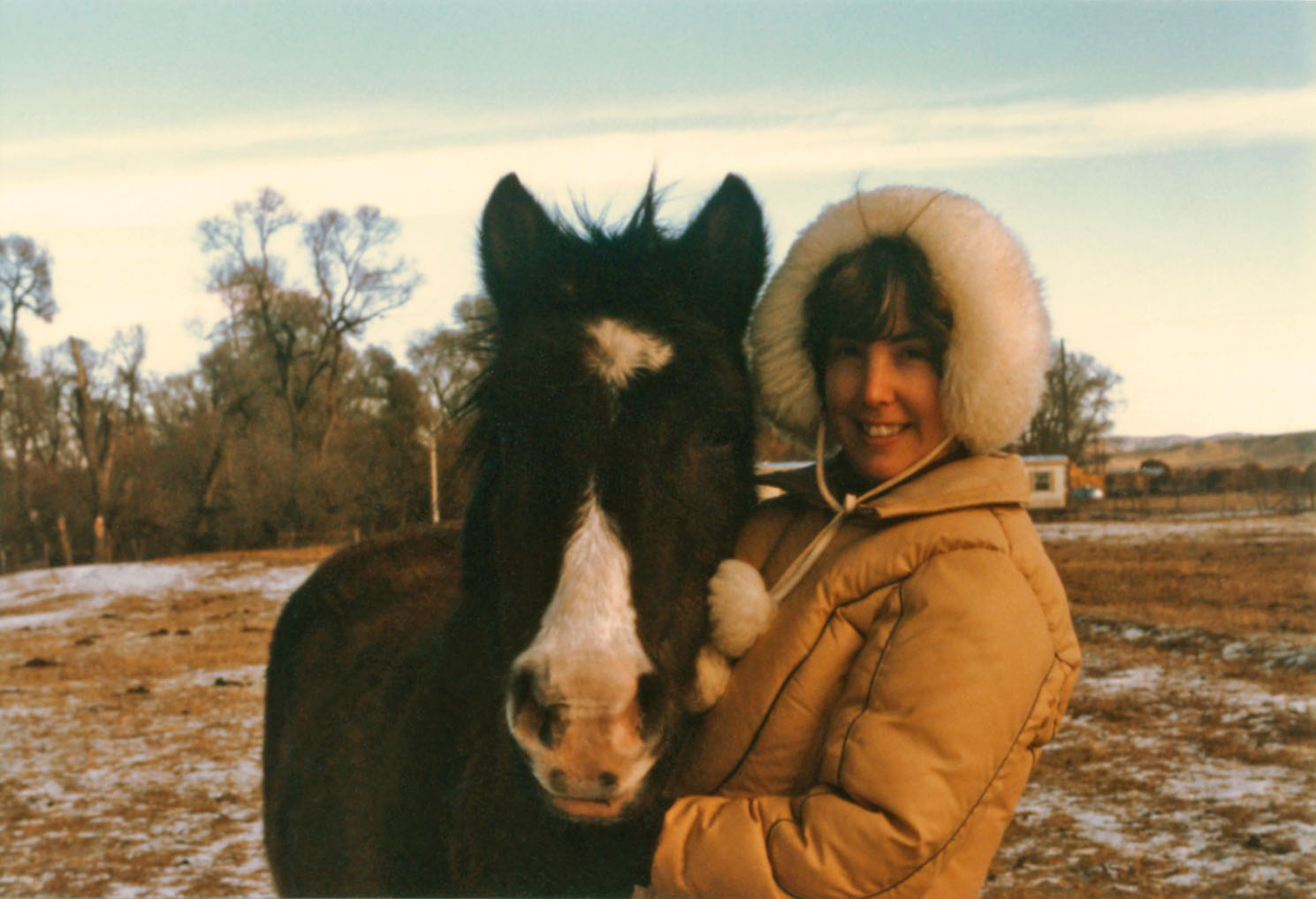
Cowboy Jargon:
Chinook Winds: What you hope for after it’s been 20 below too
long. As wet air descends off the mountains onto the plains of
Alberta, Montana, Wyoming and Colorado it becomes warmer and dry.
They refer to Chinooks as “snow killers” in Colorado as the warm
dry air melts the accumulated snow and raises the temperature.
White out: This occurs during a heavy snowfall when the contours
and landmarks around you become totally obscured and you lose your
sense of direction. During a blizzard you have heavy snowfall
with a driving wind. Sometimes that too greatly reduces visibility.

This is what ranch work looked like in January through
March in Montana or Wyoming in my grandmother
Jessamine's day. During my childhood in the 1950s it
was not unusual for a week or two in January or February
to be 20 below at sunrise. Here the X4 cattle are
following the hay wagon to a nearby pasture. The new
pasture will have hay stacks not yet depleted and easy
access to water from the Rosebud Creek. The house and barn
in the background is Jessamine and Will Johnson's home
sweet home.

This bunch of Hereford cattle are headed into the corrals
at the X4 and likely to be driven up Indian Creek just west of
the house for easy access to the meadows in that area of the ranch.
At least the wind isn’t blowing the drifts any deeper this wintery
day. The cowboy in the background isn’t far from sneaking a
quick cup of hot coffee on his way past the bunkhouse.
Another common chore at this time of year is cutting and hauling
ice blocks to the ice house (for summer use). Here you can see
the sleds and horses hard at work moving the ice from the Indian
Creek Reservoir to ranch headquarters.

Jessamine, as a photographer, was ever aware of the beauty of the
landscape even in the shivery cold.

Speaking of shivering, hard working cowboy, Emil Samuelson, knew
how to dress for any cold Montana morning at the ranch in 1927.

I’m guessing some animal or animals gave their best to keep him
comfortable from November to April in spite of the weather. It
matters little which year Mother Nature decides to send a storm
out of the north, but the winter of 2022-2023 is breaking many
records. It was 42 degrees below zero in Casper, Wyoming this
past December 22nd, breaking all previous records. Glad I wasn’t
out pushing the cattle off the hills down to the feed ground on
my pony Smokey, like I did in the 1960s.

Cowboy Jargon:
Chinook Winds: What you hope for after it’s been 20 below too
long. As wet air descends off the mountains onto the plains of
Alberta, Montana, Wyoming and Colorado it becomes warmer and dry.
They refer to Chinooks as “snow killers” in Colorado as the warm
dry air melts the accumulated snow and raises the temperature.
White out: This occurs during a heavy snowfall when the contours
and landmarks around you become totally obscured and you lose your
sense of direction. During a blizzard you have heavy snowfall
with a driving wind. Sometimes that too greatly reduces visibility.
